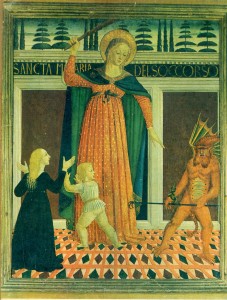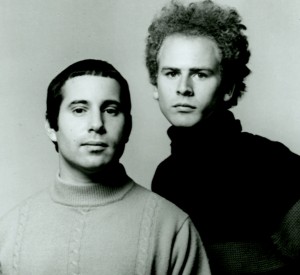One inadvertently eavesdrops on conversations, eyes discarded leaflets, witnesses unexpected scenes. A pile-up of transitory collisions somehow etch themselves to reside within you, shaping one’s destiny. Some people manage to ignore it all. I hold on, to everything possible – written out, placed in a notebook. With time’s scalpel, here is a sliced cross-section of what the breezes blew by.
Chapter One: Richman and Louie, employees at Newsweek Magazine
This conversation took place at a time when Philip Glass and Steve Reich actively began composing what became known as Minimalist Music.
scene one: men’s room, during urination:
R: Yessir, [in a sermonizing tone] Old Man Mahood’s gone! He found somethin’ better. He’s goin’. Yessir.
L: Hey Richman, Andy’s leaving too!
R: Yah, Old Man Mahood’s leavin; for good. Been a long time, he mus’ave found somethin’ better, real good.
L: Andy’s leaving too.
R: Yessir, Old Man Mahood’s going. Found something better.
[anonymous voice from a stall]: How can you get any better than this?
scene two: a discussion that occurred two-to-four times weekly:
[Louis often brought in generous quantities of lunch to share.]
L: When you bring in the food?
R: Yessir baby, I’m gonna bring in good food. . .
L: When your bring in the food??
R: Yessir, good food!
L: Shuttup you’ a liar.
R: I’ll bring in plenty for everybody.
L: Shuttup, I hate you. You don’t bring nothing.
R: Yah, I’m gonna bring in good food!
L: I DON’ B’LIEVE IN YOU’ GOD!!
R: Yessir, baby . . .(munches on Louis’s sandwich). . .
scene three: summa cum laude
R: Yessir, I use to have thirty-nine cars. . . I’m sixty eight years old. . .Um-hmm! Use’ to cook for Gen’l Patton. I cooked right out of his helmet. . .Yah (leaning to Andy), you’ young ‘n’ hansom, you get to sing and you get all the women, like Pavarotty, he sings real good. Bel Canto don’t come overnight. It takes years. . .Uh-humm.
[quiet pause]
R: Yessir, , , I see GHOSTS!
[quiet pause]
R: I see SPIRITS!!
L: You’re a LIAR! You see you’ GOD! You see the Devil. You don’ see nothin’. Shut up, I hate you! I don’ believe in you’ God!
R: I’m seventy-two-years old. Yessir.
Chapter Two: Graffiti and words of wisdom caught on the run.
December 1981, First Avenue @ 14th Street, L train eastbound platform:
Fuckin train
is fuckin late
Fuckin wait
Fuckin wait
The fuckin food
is fuckin old
Fuckin broads
are Fuckin cold
Fuckin lost,
Fuckin found
Evidently chickentown.
Chapter Three: New York’s ethnic diversity in 1986. A Polish craftsman opines:
Ach, I love the Irish! Jimmy, vy don’t you sink? The Irish they love singink. I remember a fellow Mike used to verk heeah. He vould be singink all the time. Ach vat a man he was, a real man! He loved all the ladies and the ladies loved him! And his vife would somehow find aht vere he vas and give it to him on the head on his vay aht of a voman’s apahtment! I remember the parade, you know viz everyting and he was densing! How he could dense!!
Mike’s destiny recalled a passage in A Tree Grows in Brooklyn, a rare moment wafting out of this otherwise swamp of sentimentality that seemed to hint at a karmic retribution on its way, :
About a year after Johnny’s marriage, Frankie, whom many thought even handsomer than Andy, wavered home after a drinking party one night and stumbled over some taut wire that a bucolic Brooklynite had strung around a square foot of grass before his home stoop. The wire was held up by three sharp little sticks. As Frankie stumbled, one of the sticks pierced his stomach. He got up somehow and went home. He died during the night.
a few weeks later:
Rush hour on the F train. Seated nearby, a 30-ish man held a tattered briefcase littered with decals, bearing in large letters: Duke Rotnac. He began singing aloud
Duke Duke Rotnac, Duke Duke Rotnac
with the following melody:
he then varied its accentuation into
Duke – Dukerotnac, Duke – Dukerotnac,
After four repetitions of this hymn to his alter-ego, he pulled out from his briefcase a tome of Heine’s poetry and lectured to all within hearing that “Heine was too insecure to be an atheist, unlike Spinoza. . .”
. . .at which point my stop arrived and deprived me of his wisdom.
Chapter Four: A close encounter with Enlightenment
At a time when I was interviewing musicians and ever so slowly writing their testimony into a biography on Ignaz Friedman came an encounter that still shakes me by the way it represents a search for the unknown, the lost, the intangible. A trip to Chicago to meet a pupil of Friedman’s was preceded by dinner at an aunt’s home. Their guest. . . a rare species he was! A pre-Soviet Russian who went West after the Revolution. For some reason he had to subvert the ongoing conversation to a memory that suddenly gripped him. As a youth, he lolled about a grandiose, daunting bookshelf kept in order by his father. He randomly reached up and pulled out a volume:
From the first sentence it felt as though I was discovering myself through this author. He seemed to understand me more than anyone else had in my life, even more than my own self and I couldn’t put the book down. I read on and found it was revealing everything I should know. My father unexpectedly entered and saw the book I had found, grabbed it out of my hands and said ‘You are too young to read this.’ I never saw it again, never found any trace of who might have been the author. To this day, I feel that my entire life has been incomplete for not having read it.
Decades later, I reconnected with an older cousin, their son, and asked him about this mysterious being:
His name was Gregory Lotsman, a real character. And, he ran the Soviet bookstore in Chicago for many years. I worked there for him for a while. He ran away from home when he was about 16 years old, so if that incident with the book ever really occurred, it must have been when he was in his early teens. He died around 1995, I think. I remember how he used to recite poetry, play the guitar. He also played a decent game of chess, and I still have an old chess set which he gave me which he said was carved by a prisoner in a tsarist prison. He was a colorful and bombastic character, debonair and a gentleman, though he could be quite abrasive on occasion.
–Allan Evans ©2012



